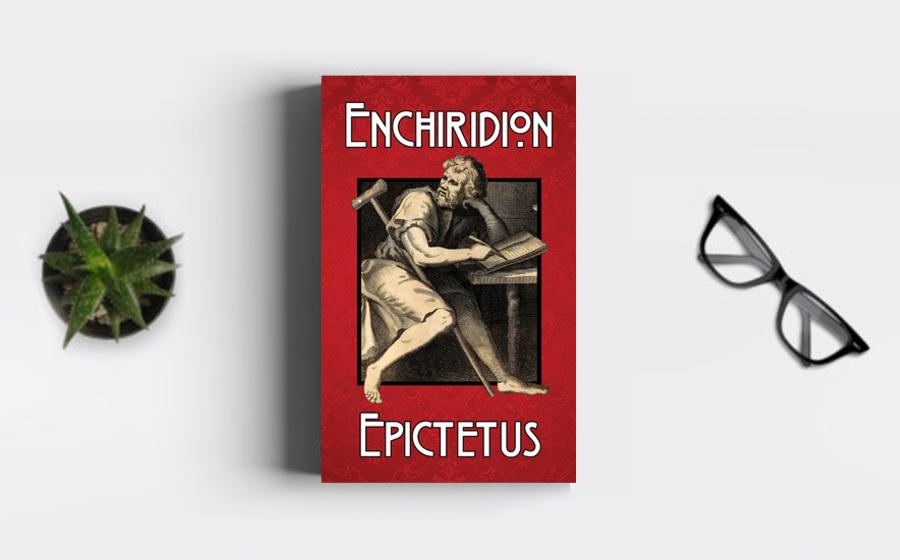"Enchiridion," a concise manual of Stoic philosophy
attributed to the ancient Greek philosopher Epictetus,
transcends the boundaries of time and culture to offer
enduring insights into the pursuit of inner tranquility
and ethical living. Composed in the first century, the
"Enchiridion" serves as a practical guide to the Stoic
way of life, providing timeless wisdom on navigating the
challenges of existence with resilience, virtue, and an
unwavering commitment to personal freedom.
Epictetus, a former slave who became a prominent Stoic
teacher, crafted the "Enchiridion" as a distillation of
his teachings. The work is comprised of short,
aphoristic statements that encapsulate the fundamental
tenets of Stoicism. Central to Epictetus' philosophy is
the idea that individuals have control over their
internal responses and judgments, even when external
circumstances remain beyond their influence. This
empowering perspective forms the core of Stoic
resilience and contributes to the enduring relevance of
the "Enchiridion."
One of the reasons
"Enchiridion" endures as a timeless philosophical work
is its emphasis on the dichotomy of control, a principle
that remains applicable across diverse contexts and
eras. Epictetus asserts that there are things within our
control (our thoughts, beliefs, and actions) and things
outside our control (external events, the opinions of
others). By focusing on what lies within our control and
accepting what does not, individuals can cultivate a
sense of inner peace and stability. This Stoic
perspective resonates in modern discussions on
mindfulness, resilience, and the importance of
maintaining agency in the face of life's uncertainties.
Epictetus' teachings on the value of virtue as the
highest good contribute to the enduring appeal of the
"Enchiridion." Stoicism encourages individuals to
prioritize moral integrity and wisdom over external
possessions, social status, or fleeting pleasures. The
emphasis on virtuous living as the key to a fulfilling
and meaningful life remains a foundational aspect of
ethical philosophy, finding echoes in various
philosophical and religious traditions throughout
history.
The concept of enduring hardships with
equanimity, a prominent theme in the "Enchiridion," has
universal resonance. Epictetus advises readers to
embrace challenges as opportunities for personal growth
and character development. This Stoic perspective aligns
with narratives of resilience and the transformative
power of adversity that persist in literature,
psychology, and self-help literature. The idea that
challenges can be embraced as opportunities for growth
is a perennial source of inspiration and remains deeply
relevant in the modern pursuit of personal development.
Epictetus' teachings on the importance of
rationality and self-discipline contribute to the
timeless nature of the "Enchiridion." Stoicism
encourages individuals to cultivate rationality, make
sound judgments, and discipline their desires and
aversions. These principles, emphasizing reason as a
guide for virtuous living, have enduring significance in
the realms of philosophy, ethics, and psychology. The
pursuit of self-discipline and the development of
rational thinking remain central to discussions on
personal and intellectual growth.
The Stoic
concept of recognizing the impermanence of external
events and cultivating an inner resilience aligns with
Eastern philosophies, particularly the principles of
mindfulness and detachment found in Buddhism. The
"Enchiridion" provides a bridge between Western and
Eastern philosophical traditions, showcasing the
universal appeal of certain principles that transcend
cultural boundaries. The convergence of Stoic and
Eastern philosophies highlights the "Enchiridion" as a
work with timeless relevance in the global pursuit of
wisdom and inner peace.
The "Enchiridion"
addresses the interconnectedness of individuals and
their social relationships, offering wisdom on
navigating interpersonal dynamics. Epictetus advises
readers to focus on their own reactions rather than
attempting to control the actions of others. This Stoic
approach to relationships, emphasizing personal
responsibility and emotional resilience, provides
valuable insights that resonate across time. The
enduring relevance of these teachings is evident in
contemporary discussions on emotional intelligence,
conflict resolution, and the cultivation of healthy
relationships.
Epictetus' emphasis on cultivating
gratitude and contentment with one's current
circumstances contributes to the "Enchiridion's"
timeless wisdom. The Stoic practice of appreciating what
one has, rather than constantly desiring more, aligns
with contemporary discussions on gratitude and
mindfulness. The recognition that lasting contentment
arises from an internal mindset rather than external
possessions remains a profound and enduring message.
The "Enchiridion" encourages readers to confront
their fears and anxieties, emphasizing the liberating
power of facing challenges with courage and resilience.
The Stoic injunction to confront and overcome fears
aligns with modern therapeutic approaches such as
cognitive-behavioral therapy, which encourages
individuals to confront and reevaluate their fears. The
enduring relevance of these teachings underscores the
"Enchiridion's" place as a timeless guide to
psychological resilience.
Epictetus' insights
into the nature of desire, attachment, and the pursuit
of tranquility contribute to the work's enduring
philosophical impact. Stoic teachings on moderating
desires and recognizing the transient nature of external
pleasures resonate with contemporary discussions on
mindfulness, minimalism, and the pursuit of a balanced
and fulfilling life. The "Enchiridion" serves as a
source of wisdom for those seeking a deeper
understanding of the human psyche and the pursuit of
lasting happiness.
"Enchiridion" by Epictetus remains a timeless philosophical work that transcends historical and cultural boundaries. Its enduring relevance lies in its distilled wisdom on the Stoic way of life, prioritizing virtue, embracing challenges with resilience, and cultivating inner tranquility. The universal appeal of its principles, addressing the dichotomy of control, the pursuit of virtue, and the transformative power of rationality, ensures that the "Enchiridion" remains a beacon of timeless wisdom. Whether as a guide to ethical living, a manual for psychological resilience, or a source of inspiration for personal development, Epictetus' teachings continue to resonate with individuals seeking enduring truths in the complex tapestry of human existence.






